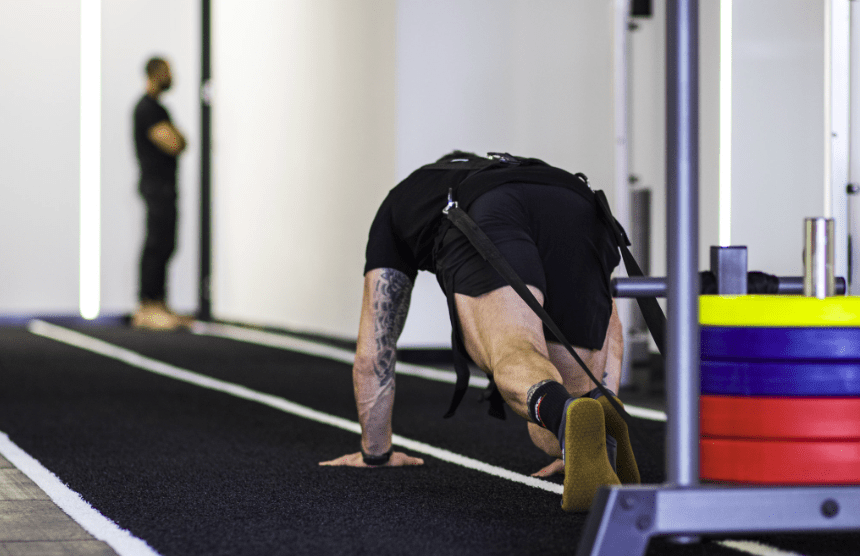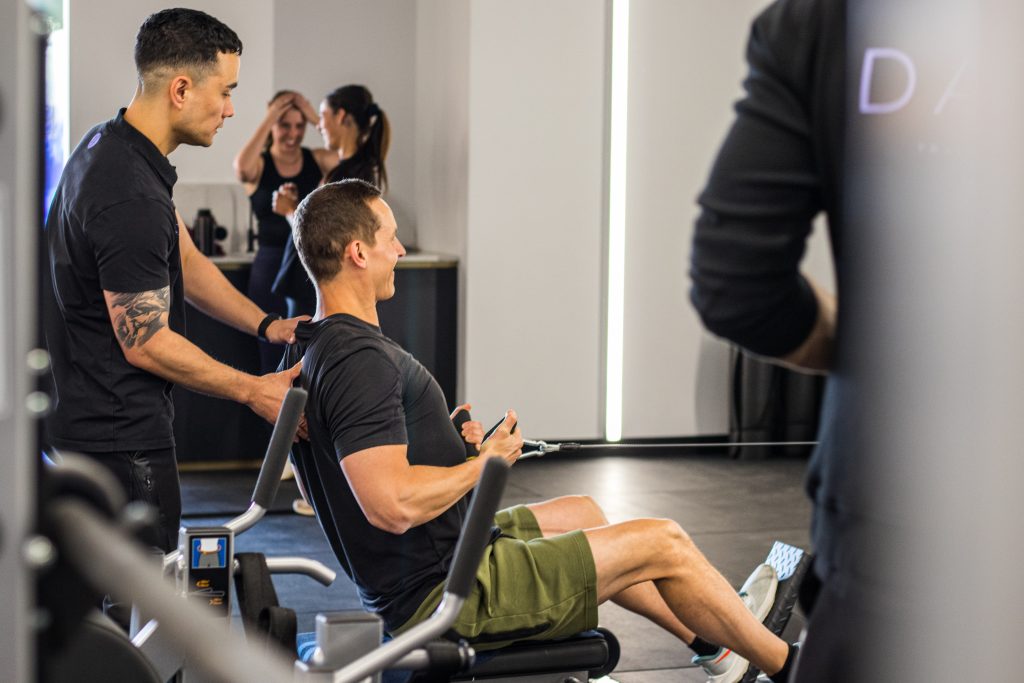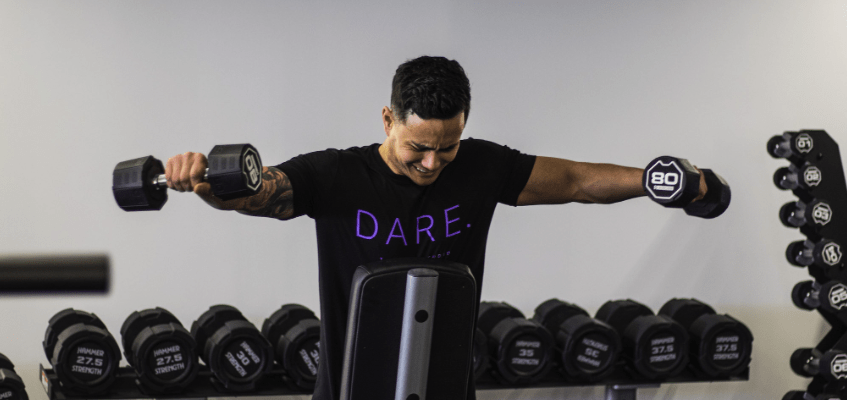Fat loss: How to lose fat sustainably
By Luke WalkerDare Head Coach
Wondering how to lose body fat sustainably?
Sustainable fat loss is achieved over time and is the result of healthy habits that allow your body composition to change.
Losing body fat and keeping it off requires an achievable calorie deficit, where you feel full and satiated but can still burn more calories than you consume. You can achieve this by eating high volume, low calorie foods, higher protein meals and increasing your exercise so that you expend more energy over the course of a day.
A calorie deficit is the minimum requirement for fat loss, but to further improve body composition you may choose to lift weights and build muscle which will allow you to both lose fat and build muscle.
In this article we’re exploring how to improve your body composition in a sustainable way.

Fat loss: How to achieve long term results
When it comes to losing body fat, knowing how to lose fat sustainably is one of the most challenging aspects. For many people, it’s tempting to try a crash diet in order to see quick results, but this often results in undereating and bingeing cycles that never end.
To achieve long term results with fat loss, it’s important to focus on sustainable lifestyle changes rather than quick fixes. This includes incorporating regular exercise, eating a balanced and nutritious diet, getting enough sleep, managing stress, and staying consistent with healthy habits. It’s also important to set realistic goals and track progress to stay motivated and on track.
How to lose body fat: 5 pillars for success
- Be in a calorie deficit
To lose fat, you need to create a calorie deficit, which means burning more calories than you consume.
A good rate of fat loss to reach for is 0.5-1kg per week, which requires a daily calorie deficit of around 500 calories. This is a very rough guide and each individual will need specific calorie requirements to reach their goal. However, it is always the case that a calorie deficit is needed for fat loss.
- Eat a high protein diet
High protein diets have been shown to be effective for fat loss as they can increase feelings of fullness, overall calorie intake and give us the materials to be able to build and maintain our muscle mass.
It’s recommended to aim for a daily protein intake of around 1 gram per kg of body weight when following a high protein diet for fat loss. This will help you build and maintain muscle while also losing fat.
- Walk 10k steps per day
Walking is one of the best exercises to decrease body fat, as it doesn’t tend to ramp up your hunger as much as other cardio. Walking is able to increase your N.E.A.T (non-exercise activity thermogenesis) which is the method that burns most of your calories throughout the day.
Often people will opt for hard cardio, HIIT or endurance exercise when trying to lose fat, however these forms of exercise often produce a bigger increase in hunger vs the calories they burn. The result? An overconsumption of calories due to an increase in hunger levels.
- Strength train
While training in the gym doesn’t guarantee fat loss, it can help build and maintain muscle which improves body composition.
When you’re in a calorie deficit, you risk losing muscle as well as fat. Eating a high protein diet, combined with strength training provides an insurance against this loss of muscle which will negatively impact body composition. Strength training can also burn calories, contributing to the deficit needed for fat loss.
- Eating high volume, low calorie foods
Incorporating high volume, low calorie foods into your diet can help you feel full and satisfied while still maintaining a calorie deficit for fat loss.
Some examples of high-volume, low-calorie foods include fruits and vegetables like watermelon, strawberries, broccoli, and carrots, as well as lean proteins like chicken breast and fish.

Working with a personal trainer for sustainable fat loss
With so much competing misinformation out there around fat loss and health, it’s no surprise that very few people are walking around with their dream body.
One (significant) aspect of sustainable fat loss is discipline. It goes without saying that you’ll need to be committed, disciplined and willing to await delayed gratification. But another piece of the puzzle is having the correct information and trusting the process. That’s where a personal trainer can increase your chance of sustainable fat loss and make the process more enjoyable.
Want to train at our 6-star studio in Melbourne? Book a tour today.
